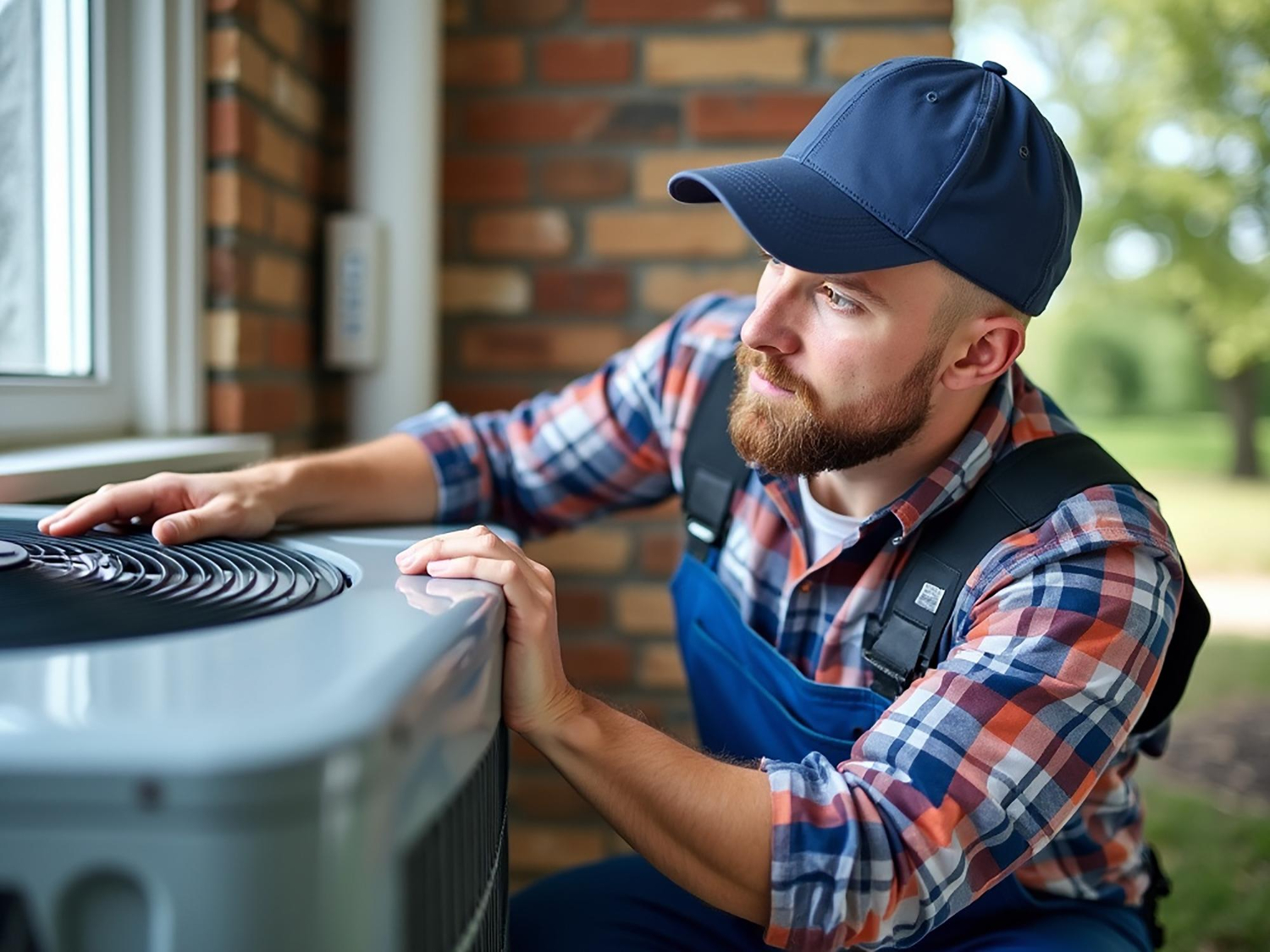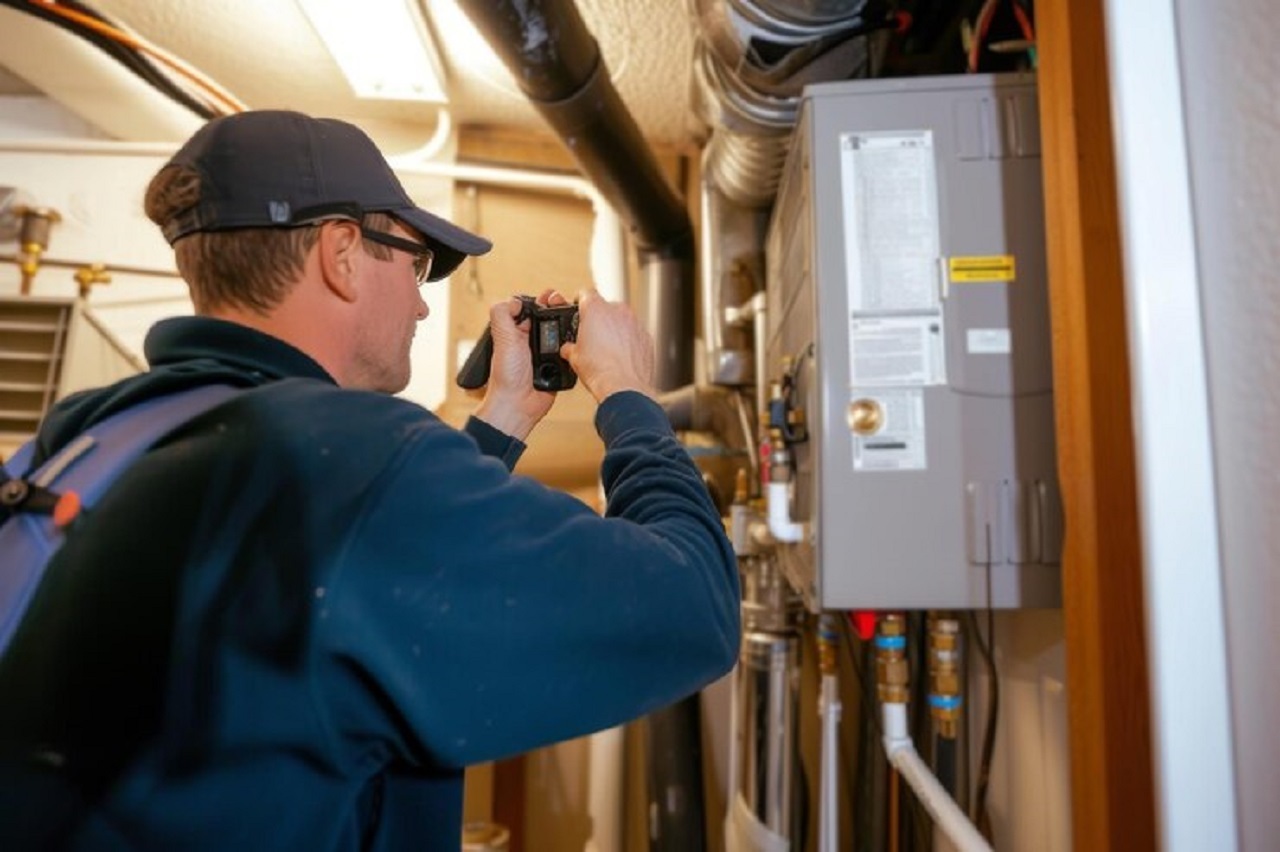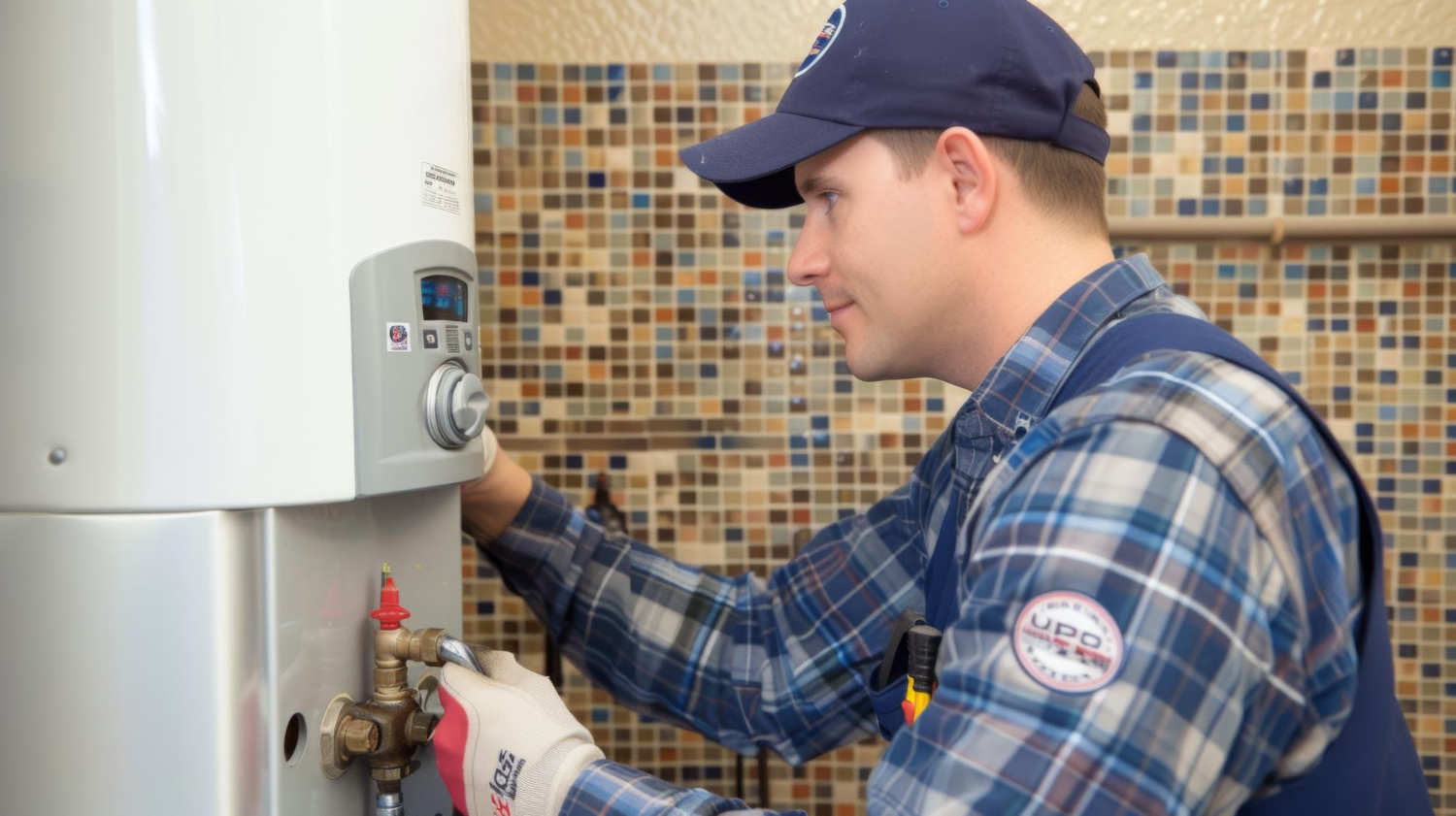There are various types of heat pumps available for use in residential homes, with the two main types being air source and ground source. But what exactly is a heat pump, and how does it work? In this post, we’ll explain the basics of heat pumps – from energy efficiency benefits to different types of heat pumps.
What Is A Heat Pump?
When choosing an HVAC system, the common question is, “what is a heat pump?”. A heat pump is an electrical machine designed to move heat from one place to another. It works by drawing in warm air or liquid and transferring it elsewhere. This process can be used to either cool or heat a space, depending on the type of system you have installed.
Heat pump systems are commonly used for heating and cooling buildings, as well as for heating water. They can be more energy-efficient than traditional heating and cooling systems since they don’t generate heat like a furnace. Instead, they move heat from one location to another.
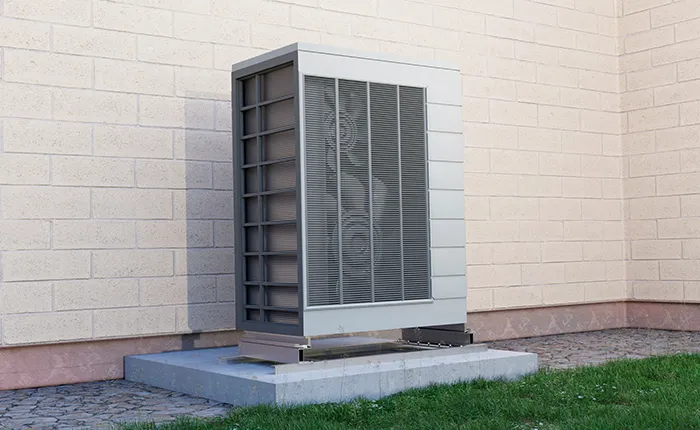
Types Of Heat Pumps & Their Applications
Heat pumps come in various types, each with its own unique features and applications. It’s crucial to grasp the distinctions between them before making a decision. Here, we’ll give you an overview of the three main types: air-source, ground-source (geothermal), and water-source heat pumps.
Air Source
These are the most common types found in homes. They work by extracting heat from outside air and transferring it indoors for warmth during colder months. In warmer weather, they can also cool indoor spaces by removing heat from inside and releasing it outdoors.
- Efficiency: Air-source heat pumps offer excellent energy efficiency compared to traditional heating systems.
- Cost-effectiveness: They are generally more affordable upfront than other types of heat pumps.
- Versatility: These units can be installed in various locations such as rooftops or ground-level areas near your home.
Geothermal (Ground-Source)
These utilize stable underground temperatures for both heating and cooling purposes by extracting thermal energy from the earth through buried pipes.
- Efficiency: Geothermal systems offer exceptional energy efficiency due to their reliance on constant ground temperatures.
- Longevity: With proper maintenance, these units have a longer lifespan compared to other HVAC equipment.
- Quiet Operation: Geothermal systems operate quietly since they don’t require outdoor condenser units like air-source models do.
Water Source Heat Pumps
These extract thermal energy from a water source such as a lake or well, transferring it to your home during winter and removing it during summer months.
- Efficiency: Water-source heat pumps offer high efficiency due to stable water temperatures.
- Flexibility: These units can be installed in various settings including residential buildings, commercial properties, and large-scale industrial applications.
- Environmental Impact: Water-source heat pumps have minimal environmental impact since they utilize renewable energy sources like lakes or wells.
How Do Heat Pumps Work?
At its core, a typical heat pump consists of three main components: an evaporator coil, compressor unit, and condenser coil. The process begins when the refrigerant absorbs thermal energy from either outside air (in winter) or inside air (in summer) through the evaporator coil. This absorbed energy causes the refrigerant to vaporize into gas form.
The compressor then increases the pressure and temperature of this gaseous refrigerant before it flows into the condenser coil located indoors during winter months (or outdoors during summer). As it passes through this coil, it releases its stored thermal energy into your home’s living space while returning to liquid form.
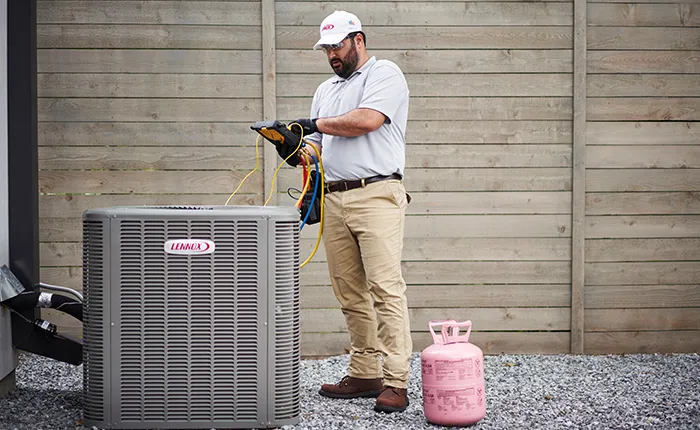
Here is a step-by-step breakdown of how heat pumps work in cooling mode:
- Step 1: In this step, the liquid refrigerant is pumped through an expansion device at the indoor coil, which functions as the evaporator. As air from inside the home is blown across the coils, the refrigerant absorbs heat energy from the indoor air, causing it to evaporate into a gas. The cool air is then blown throughout the home’s ducts.
- Step 2: The gaseous refrigerant passes through a compressor, pressuring the gas. This causes the gas to heat up, moving through the system to the coil in the outdoor unit.
- Step 3: The hot, pressurized refrigerant moves through the outdoor coil, which serves as the condenser in cooling mode. The fan in the outdoor unit moves outside air across the coils, and heat is transferred from the refrigerant to the outside air. As a result, the refrigerant condenses back into a liquid state.
- Step 4: The warm liquid refrigerant is pumped back through the system to the expansion valve at the indoor unit. Here, the pressure of the refrigerant is reduced, causing it to cool significantly. The cool, liquid refrigerant is then pumped back into the evaporator coil in the indoor unit, and the process begins again.
The following is a detailed explanation of how heat pumps operate in heating mode:
- Step 1: The outdoor coil now functions as the evaporator and absorbs heat energy from the outside air. The cool liquid refrigerant in the outdoor coil is turned into a cold gas.
- Step 2: The cold gas is compressed, causing its temperature to rise and turn it into a hot gas. The hot gas is then sent through the refrigerant line to the indoor unit.
- Step 3: In the indoor unit, the hot gas is cooled by passing air over the indoor coil, which now serves as the condenser. This releases heat energy into the indoor air, warming the air and causing the hot gas to condense into a warm liquid.
- Step 4: The warm liquid refrigerant is sent back through the refrigerant line to the outdoor unit, where the reversing valve sends it to the outdoor coil to begin the process again. As the warm liquid enters the outdoor coil, its pressure is reduced, causing it to cool down and turn back into a cool liquid.
Benefits Of Heat Pumps
Heat pumps are an excellent choice for heating and cooling your home, offering a range of benefits that make them stand out from traditional systems. Here’s why heat pumps are the top choice:
- Energy Efficiency: Heat pumps excel at converting energy into heat or cool air without burning fuel, resulting in significant energy savings.
- Environmental Friendliness: By using electricity instead of fossil fuels, heat pumps produce fewer greenhouse gas emissions and contribute to a cleaner environment.
- Cost Savings: While the initial investment may be higher, heat pumps lead to long-term cost savings on utility bills compared to other heating systems.
- Year-Round Comfort: With both heating and cooling capabilities in one system, you can enjoy comfort throughout the year without needing separate HVAC units.
- Versatility in All Climates: Heat pumps can operate efficiently even in colder climates by extracting warmth from outdoor air, making them suitable for various weather conditions.
- Long Lifespan: Properly maintained heat pump systems have a longer lifespan than traditional heating systems like boilers or electric heaters.
- Even Temperature Distribution: Heat pump systems distribute warm or cool air evenly throughout your home with minimal temperature fluctuations or hot/cold spots commonly experienced with other types of HVAC systems.
- Low Noise Levels: Modern heat pump models are designed with noise reduction features that ensure quiet operation inside your home so you won’t be disturbed by loud machinery noises typically associated with traditional heating systems.
- Improved Indoor Air Quality: Heat pumps use filters to clean the air as it circulates through the system, removing dust, pollen, and other allergens which greatly improves indoor air quality.
- Smart Technology Integration: Many modern models come equipped with smart technology features that allow remote control and monitoring via smartphone app, adding convenience and flexibility to your home’s management.
It is important to note that while there are numerous benefits offered by heat pumps, they may not be suitable for every situation or climate due to factors such as extreme cold temperatures or limited space availability affecting their performance. Consulting with a professional HVAC technician will help determine if a heat pump is right for your specific needs.
Do Heat Pumps Come In Different Sizes?
Yes, heat pumps come in different sizes. The size of a heat pump is determined by the square feet (sq ft) that needs to be heated and how many tons or British Thermal Units (BTUs) are necessary for the space.
Generally, for every 500 square feet of floor area in a home, 12-15 BTUs will be required per hour. As an example:
- For a space up to 500 sq ft: 1 ton (12,000 BTU) is typically recommended.
- For a space between 500 – 1000 sq ft: 2 tons (24,000 BTU) would suffice.
- For spaces between 1000 – 1500 sq ft: 3 tons (36,000 BTU ) should provide sufficient heating.
- And so on.
It is also important to consider some additional factors when selecting the appropriate size, such as:
- The size of your home and its layout.
- The number and location of your windows.
- How often do you need heating and cooling in the local area?
- How is the air filtration system in your home?
- How good is the insulation in your home?
- What is the number of people who reside in your household?
- What is your preferred temperature?
- What are the heat-generating appliances in your home?
A manual J load calculation may be required to establish the final capacity requirement.
Are Heat Pumps More Expensive Than Other HVAC Systems?
Heat pumps are more expensive than other HVAC systems upfront, but the long-term cost savings can be significant. The average cost to install an air-to-air heat pump is between $12,000 and $25,000, including labor costs.
But, there are rebates and incentives available locally through your utility company, and nationally through the Inflation Reduction Act, which can help defray the cost of purchasing a heat pump in 2023 — up to $8,000 in some cases.
When considering whether or not to purchase a heat pump system for your home, consider all elements involved, including initial investment costs Vs. how much electricity it will save over time. Ultimately, investing in an energy-efficient system like a heat pump will benefit you financially in the long run while helping protect the environment from waste produced from burning fossil fuels.
Are Heat Pumps More Efficient Than Other HVAC Systems?
Heat pumps are indeed more efficient than other HVAC systems in some cases. Heat pumps use energy from the outside air to heat and cool your home, making them much more energy-efficient than traditional electric or gas furnaces and central air conditioners. A properly sized and installed heat pump system can save up to 50% on an average family’s heating and cooling costs.
However, it’s important to remember that proper installation of a heat pump is vital for its optimal efficiency performance levels, especially when it comes to sizing. So make sure you hire an experienced professional HVAC installer who understands local building codes for your system to run optimally and safely over time.
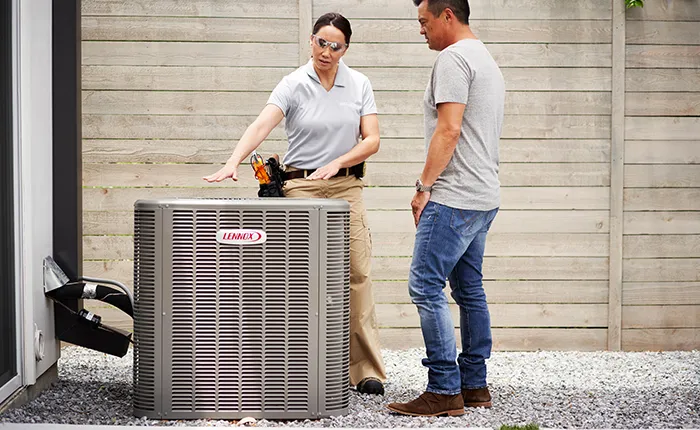
Additionally, one thing to remember about heat pumps is that they work best in concert with other measures that help improve your home’s energy efficiency, such as insulating walls around windows/doors. If you have old drafty windows, then new, improved insulation wouldn’t be able to provide peak efficiency after installation.
Important note
Upgrading those existing windows and doors where necessary can maximize their efficiency potential while helping reduce your monthly electric bills. Otherwise, even with the most efficient heat pump, you will get the maximum results from your investment in a new system with the proper insulation upgrade.
Are Heat Pumps Quiet When Running?
Yes, heat pumps are relatively quiet when running. Most modern heat pumps feature outdoor units that operate at a sound level of about 60 decibels — a rating lower than that of the average conversation. This feature makes them suitable and ideal for those who prefer noise-free environments. Some newer models on the market can attain lower sound levels, depending on size and features.
It’s important to note that both indoor and outdoor heat pump components make noise when running. However, this is usually muffled due to the construction materials used in their production. In particular, insulation helps reduce machine rattling and vibrating sounds from being heard inside your home.
Heat pumps are particularly beneficial for bedrooms or other areas where you may want quieter cooling solutions — notably those areas where light sleepers and young children might be present. As such, investing in a good-quality heat pump is an excellent choice if you’re looking for an efficient way to stay cool without disrupting others’ restful states or general peace within your environment with loud noises.
Can I Use Heat Pumps For Both Cooling & Heating Purposes?
Yes, heat pumps can be used for both cooling and heating purposes. Heat pumps are great for climates with mild winters and hot summers. They use the same technology as air conditioners to remove heat from a home or building during the summer months and then reverse the process to generate warmth within the property in the winter months.
Heat pumps typically have a mechanism called a “reversing valve,” which allows them to switch between heating and cooling modes. A single unit will move energy – either inwards or outwards – depending on whether you need it to cool your home down or warm it up. This way, less energy is wasted because no fuel is burned off during seasonal changes like traditional HVAC systems do.
When selecting an appropriate model for a heat pump, make sure that its Coefficient Of Performance (COP) rating is above 0.7 when using it for cooling purposes, as this indicates efficiency in operation and cost savings over time compared with traditional HVAC systems.
Conclusion
Heat pumps are a great way to keep your home comfortable all year round without the need for traditional HVAC systems. They provide efficient cooling and heating solutions at an affordable cost. But like any other system, it’s important to ensure that you purchase the correct type of heat pump to suit your needs. Remember that existing windows and doors that are sufficiently insulated will maximize the efficiency of the heat pump.
If you’re looking for a reliable and experienced heat pump service provider in and around Orange County, California, then look no further than Haven Air Conditioning. Our team consists of highly qualified technicians who specialize in all types of HVAC systems, including heat pumps. We offer a wide range of services, from installation and maintenance to heat pump repair works and upgrades. Get in touch with us today for tailored advice about the best heat pump for your home or workplace.
Do you want to learn more about heat pumps? Read our article about the differences between heat pumps and air conditioning.



